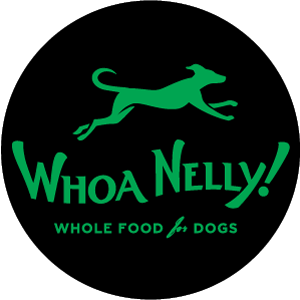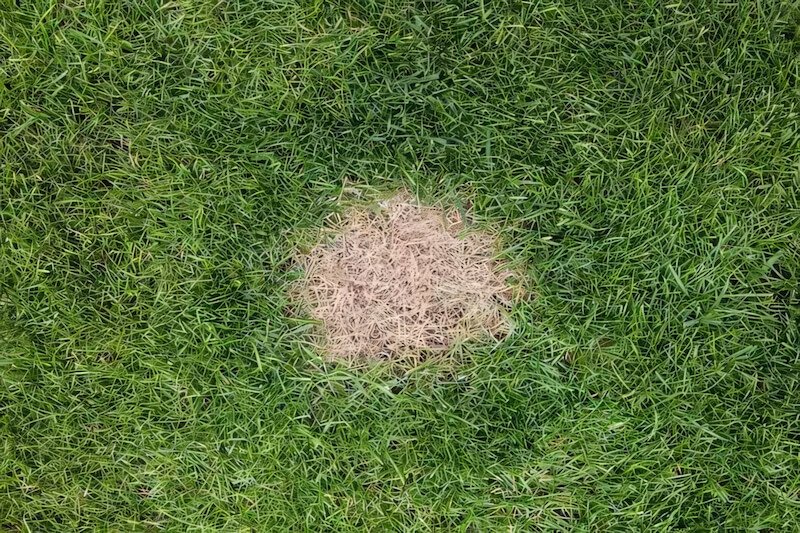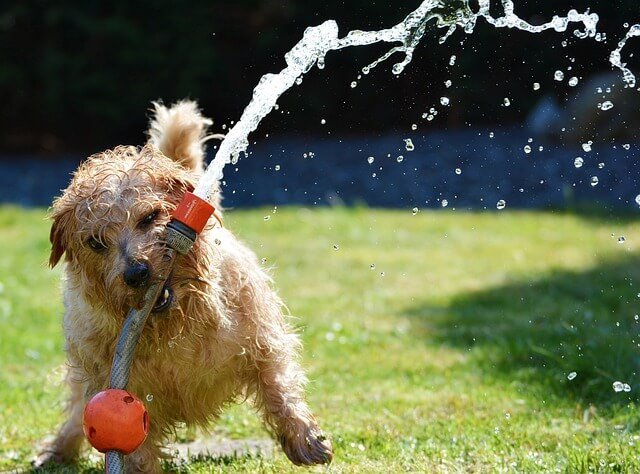How To Stop Dog Urine From Killing Your Grass
In This Article
If you have a dog and a lawn, you probably have patches of burned grass surrounded by a circle of dark green healthy grass. And it’s probably driving you crazy 🤪
Dog urine can harm your lawn because it is high in nitrogen, the primary ingredient in fertiliser. When your dog pees on the grass it adds lots of fertiliser to one spot, which can either kill the grass or make it grow too much - or both.
Effect of diet on lawn burn
The nitrogen in your dogs urine is a product of protein metabolism. Their body breaks down the amino acids into several components which are eventually excreted as nitrogen.
Keep in mind that dogs are primarily carnivores and need to eat a diet that is made up mostly of meat, so there is no getting away from this. Interestingly plant based protein sources may actually lead to higher nitrogen concentration, so animal sources are best (as well as being nutritionally superior of course).
Because it is natural anything that reduces the amount of nitrogen in their urine (like feeding less protein) is potentially harmful.
While lawn burn is difficult to avoid completely via diet there are some strategies that can help.
Strategy 1: Lots of walks
This is bit of a cheeky - but taking your dog for a walk morning and night will naturally get them to pee outside of your house. That’s two less lawn holes a day!
OK, real solutions now 😂
Strategy 2: Extra hydration
One good way to reduce nitrogen in dog urine is to have your dog drink more water. However it is often easier said that done!
The best way I have found to increase hydration is to offer bone broth or water diluted with bone broth. This is delicious - most dogs love it - and is also extremely beneficial to their gut. There is no downside to giving your dog bone broth, just make sure that it doesn’t contain onion.
Raw fed dogs will naturally consume less water because most of the moisture they need comes from their food. For reference meat is about 70% moisture. Kibble fed dogs have significantly higher water requirements as their food is only 6% water. So if your dog is fed a dry food diet they will need to be drinking a lot of water during the day to avoid dehydration.
This idea of extra hydration also applies to your grass. By increasing the amount that you water your lawn will also dilute the nitrogen on it and spread it around. A quick hose when your dog does a wee can be quite effective in stopping lawn burn - but obviously it’s fairly labour intensive!
Strategy 3: Designated pee area
The most effective strategy is to train your dog to pee in a specific location. This confines the fertiliser effects to a single part of your lawn, leaving the majority burn free.
To do this you first need to pick a designated spot for your dog to pee. Ideally you want them to be relieving themselves on mulch, bark or gravel as it will not affect these surfaces. To effectively change their behaviour around peeing you need to ensure they no longer urinate unsupervised. Being consistent with this during the training period will help your dog learn faster and make it easier for you as well.
Now we have a spot it’s time to start training. Several times a day put your dog on a lead and take them to the designated pee area. Don’t prompt your dog, play or communicate with them. Just take them to the spot and wait for a few minutes.
If they relieve themselves then make sure you reward them! Single ingredient dog treats are a great option, alongside praise and affection. And if they don’t go, don’t worry! Just take them back inside and try again later. Consistency is key here. You need to keep doing this simple routine over and over until your dogs behaviour changes (and it will).
This method works best, so if lawn burn is a serious issue, this is the best way to fix it.
What about “Dog Rocks”?
Dog rocks are sold as a natural solution, removing nitrates from your dogs drinking water. You put the rocks in your dogs drinking bowl and they dissolve. They do not change the pH of the water or of your dogs urine, they just remove some of the impurities from the drinking water.
Anecdotally I have found this method to be ineffective. The issue is urine pH and nitrogen which is primarily produced by diet. Water purity does not seem to be a major contributing factor
And so in conclusion.. it’s very difficult to avoid completely! In my opinion your best options are to train your dog to pee in a designated area - or to just stop worrying about your lawn 🐾





